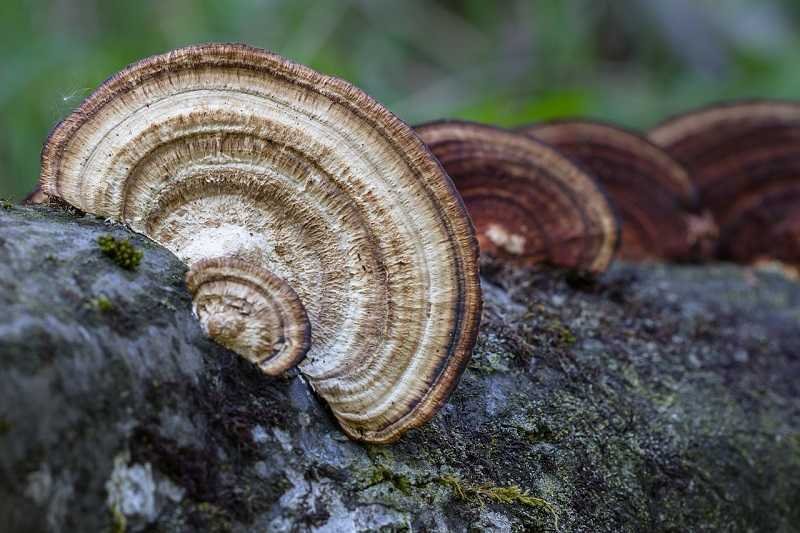Chaga Mushroom Health Benefits And Potential Side Effects

Imagine walking through a northern forest and spotting an unusual black growth on a birch tree. That’s chaga – a mushroom with a story that begins centuries ago with traditional healers and continues today in research laboratories.
This article explores what science has discovered about chaga mushrooms and their potential health benefits. By reading it, you’ll learn what makes chaga special among medicinal fungi, what research has found about its properties, and why scientists are taking a serious look at this forest-dwelling fungus.
Chaga mushrooms contain an impressive mix of beneficial compounds. Scientists have found they’re packed with antioxidants that help protect cells, substances that support immune function, and components that might fight cancer cells.
The mushroom is considered by many as a source of medicinal benefit for individuals, with some going as far as naming it “kreftkjuke” in Norway, which means the “cancer fungus” as a result of its proposed benefit in the prevention and management of cancer. Other names by which it is sometimes called includes the “black mass”, “cinder conk”, the “sterile conk trunk rot” and many others.
While people in Russia, Eastern Europe, and parts of Asia have used chaga for hundreds of years, modern researchers are now conducting tests that back up some of these traditional uses.
- Micro Ingredients offers an Organic Chaga Mushroom Extract Powder, harvested from wild birch trees, 10-ounce supply, 141…
- These freshly harvested wild mushrooms come from a potent 100:1 extract.
- Enjoy natural benefits from a vegan-friendly raw mushroom formula.
What Makes Chaga So Special?
Chaga mushrooms are special among fungi because of their unique makeup. They contain over 250 helpful compounds, including betulin, polysaccharides, and phenolic compounds, which give chaga many health benefits.
These forest mushrooms have strong antioxidants that can reduce cell damage by about 40% when used preventatively, making them one of the most powerful antioxidant mushroom sources you can find. The β-glucans, which make up roughly 8.57% of chaga, help support the immune system.
Chaga’s dark black color comes from high levels of melanin and lanostane, substances that may help fight cancer.


On top of that, chaga provides important minerals like potassium, manganese, zinc, calcium, and copper. These minerals support many body functions and contribute to chaga’s reputation as a well-rounded health-boosting fungus.
Chaga Mushroom Health Benefits
Scientific research has identified multiple evidence-based health benefits associated with Chaga mushroom consumption.
These include immune system improvement through beta-glucans, potent antioxidant properties that combat oxidative stress, anti-inflammatory effects, potential anticancer activities observed in cellular studies, and possible blood sugar regulation capabilities.
While clinical human trials remain limited, preliminary research suggests Chaga may offer significant therapeutic potential across several health domains.
Immune System Support
Chaga mushrooms can help support your body’s natural defenses. They contain special compounds called beta-glucans that improve how your immune cells communicate with each other.
Studies show these mushrooms may boost the activity of blood cells, helping your body fight off various infections.
Animal research suggests that extracts from Chaga mushrooms can strengthen immunity by adjusting immune responses and increasing antibody production.
Lab studies have also shown that Chaga has properties that may help your body resist harmful organisms and support overall immune health.
While the early evidence looks promising, it’s important to note that scientists agree more research involving humans is needed to fully confirm these benefits.

Antioxidant Properties
Chaga mushrooms are known for their amazing ability to fight harmful molecules called free radicals. They’re one of the strongest natural antioxidant sources available. Research shows that when cells are treated with Chaga before being exposed to harmful substances, they experience about 40% less damage, which shows how well these mushrooms can protect our cells.
What makes Chaga so effective is its rich mixture of natural compounds, especially its high levels of phenolic compounds, polysaccharides, and melanin. All these natural elements work together to neutralize harmful free radicals and protect our cells from damage.
Studies have found that Chaga extracts can actually reduce the cellular stress associated with long-term liver problems, which suggests they might be helpful for liver health.
On top of that, consuming Chaga improves how our immune system works by optimizing the proteins that control inflammation and help immune cells communicate with each other. As a result, Chaga provides well-rounded protection against cell damage.


Anti-inflammatory Effects
Research on Chaga mushrooms is still growing, but there’s good evidence they can help fight inflammation in the body. Chaga contains natural compounds that work against ongoing inflammation linked to many health problems by stopping harmful substances the body produces when inflamed. [xx]
Studies show Chaga helps lower harmful stress in cells, which often causes inflammation in the first place. Tests in animals have shown promising results, with inflammation markers decreasing after they received Chaga. This scientific research backs up what traditional healers have known for years about Chaga’s ability to help with inflammatory conditions.
On top of that, Chaga’s inflammation-fighting properties may also be good for heart health by reducing the inflammation that can lead to heart disease.
Potential Anti-Cancer Properties
One of the most interesting things about Chaga mushrooms is their possible cancer-fighting abilities, which have been shown in lab and animal testing.
Studies have found that natural compounds in Chaga can stop cancer cells from growing and can cause these harmful cells to die, especially in lung, breast, and cervical cancers.
Chaga contains powerful substances that protect cells from damage that could lead to cancer. These substances come from the high levels of natural plant compounds in the mushroom.
Additionally, studies in animals suggest that Chaga extracts might slow tumor growth and could make standard cancer treatments work better.
However, it’s worth mentioning that we still need proper testing in humans to really know if Chaga works safely and effectively against cancer in people.
Blood Sugar Regulation
Chaga mushroom shows promise for helping control blood sugar, especially in studies with mice. Research found that mice with diabetes given Chaga extract had lower blood sugar levels and better overall blood sugar control compared to mice that didn’t receive treatment.
The helpful effects seem to come from natural substances in the mushroom, particularly compounds called β-glucans, which may help regulate sugar levels and make the body respond better to insulin.
Also, Chaga contains powerful antioxidants that might reduce harmful stress in the body that can lead to insulin resistance and type 2 diabetes.
Although these early findings are encouraging, we still need more research with human participants before we can be sure about how well Chaga works for managing blood sugar and whether it’s completely safe for people with diabetes to use.
Skin Health
Chaga mushroom is really good for your skin, mainly because it’s full of antioxidants. The dark pigment in Chaga helps protect skin cells from damage and also works as a natural shield against harmful sunlight.
Chaga also helps reduce inflammation, which is why it may help with skin problems like eczema and psoriasis. [xx]
On top of that, certain natural compounds in the mushroom boost your skin’s defense system, which might help wounds heal faster and fight off skin infections. [x]
Early research shows that Chaga might also help keep your skin moist and bouncy, making it look younger.
- Lion’s Mane Capsules for Brain & Immune Support: Made using hand-picked Lion’s Mane mushroom extract, our supplement pro…
- Organic Mushroom Extract: Our mushroom capsules are only made from 100% mushrooms (fruiting bodies), not mycelium grown …
- Measured Beta-Glucans: Verified by 3rd-party labs, our organic mushroom supplement has >30% beta-glucans per capsule, he…
How to Consume Chaga (Practical Guidance)
When thinking about adding Chaga mushroom to your wellness routine, you have several options that vary in ease of use and strength.
- Chaga tea is the most traditional method – simply simmer small pieces in boiling water for at least five minutes to draw out the beneficial elements.
- Chaga Capsules – If you prefer something more convenient with exact amounts, capsules work well and fit easily into daily habits. You can swallow them directly or mix them into drinks if you have trouble with pills.
- Liquid tinctures provide a stronger option that you can place under your tongue for quick absorption into your body.
- Chaga Powder – Chaga powder is another way to consume chaga mushroom. It’s the same as the capsule form, but without the capsule. If you like to mix in smoothies, then this is the best option for you.
However, no matter which form you choose, it’s really important to make sure your Chaga comes from clean areas to avoid harmful metals and ensure it’s safe to use. Here’s a list with some of the best selling Chaga Mushroom supplements you can buy on Amazon.
Safety and Potential Side Effects (Important Cautions)
While chaga mushroom offers many health benefits, it does come with some important risks to be aware of.
- Chaga contains high levels of substances called oxalates that might increase your risk of kidney stones and could harm your kidneys, especially if you already have kidney problems.
- Also, chaga can thin your blood, which means it might not mix well with blood-thinning medications like warfarin. This combination could raise your risk of bleeding. If you have any bleeding disorders, you should be particularly careful.
- On top of that, chaga may lower your blood sugar. This could be dangerous if you take insulin or other diabetes medications, as your blood sugar might drop too low.
Because of these concerns, it’s really important to talk with your doctor before you start taking chaga supplements, particularly if you have health conditions or take medications.
How to Choose Quality Chaga (Consumer Advice)
When looking for good chaga products, you need to check a few important things to get the health benefits while staying safe.
- Try to find chaga that’s been gathered from birch trees growing in clean areas away from pollution – this helps ensure it’s both effective and safe.
- Good quality products will mention that they contain the hard outer growth (sclerotia) rather than the inner parts. This harder part has more of the helpful compounds.
- Look at the label for beta-glucan percentages – higher numbers usually mean better immune support.
- It’s also worth checking if the product has been tested by independent labs. This testing makes sure there are no dangerous metals or other harmful substances that mushrooms can absorb from polluted environments.
- If you care about the environment, choose organic chaga that’s been collected in ways that don’t harm nature.
I suggest you check our article on “What to look for when buying supplements“. It gives some sold advice that will teach you how to choose brands from the myriads of supplement companies that are out there.


Final Thoughts
To wrap up our look at Chaga mushroom benefits, we’ve seen it’s a versatile natural supplement with real health potential.
Research shows it has strong antioxidant properties that can reduce cell damage by about 40%. Early studies suggest it might help fight certain types of cancer like lung, breast, and cervical cancer, though we need more human studies to be sure.
The natural compounds in Chaga seem to boost immune function, and its anti-inflammatory properties may help with ongoing inflammatory conditions.
But we should also be aware that Chaga can interact with some medications and contains high levels of oxalates.
As research moves forward, it makes sense to use Chaga thoughtfully – taking advantage of its benefits while being mindful of its limitations. In the future, more clinical studies will likely tell us even more about this interesting mushroom, especially as more people become interested in natural health products.






